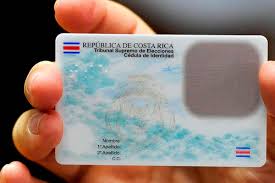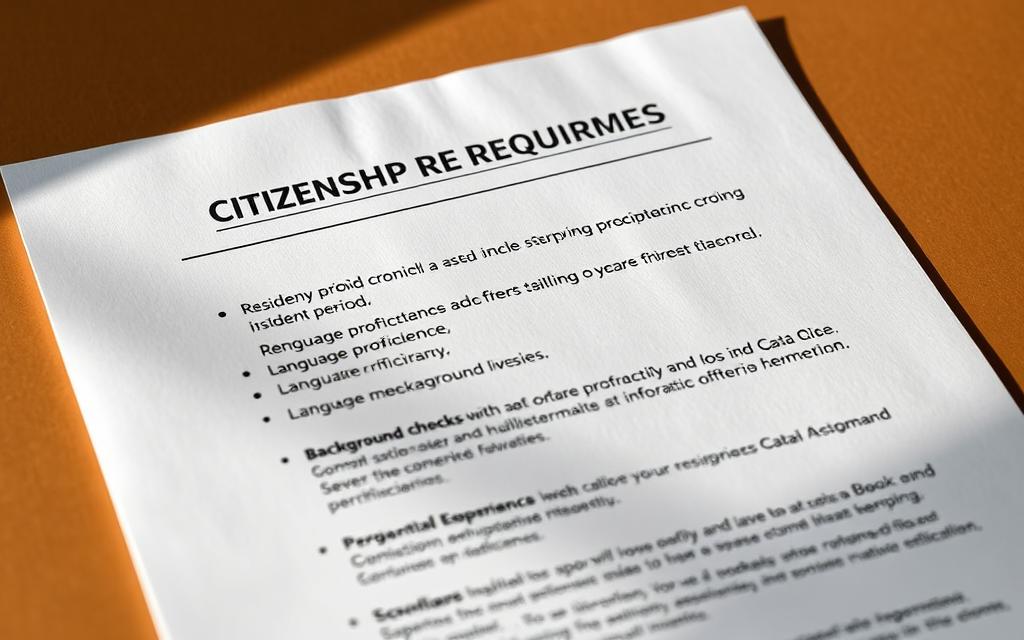How to Apply for Costa Rica Citizenship After Permanent Residency

Costa Rica has been officially recognized as the happiest and most sustainable country in the world, according to the Happy Planet Index (HPI). This distinction, combined with its natural beauty, mild climate, and rich culture, makes it an attractive destination for individuals and families seeking an improved quality of life.
To become a Costa Rican citizen, one must first establish permanent residency in the country. Understanding the process of obtaining citizenship is crucial for those looking to make this tropical paradise their permanent home. We will explore the complete process, providing a comprehensive roadmap for those seeking Costa Rica citizenship.
With its reputation for being one of the happiest and most sustainable countries globally, Costa Rica offers a high quality of life in a politically stable environment. The path to citizenship requires patience and commitment but offers numerous benefits for expatriates.
Understanding Costa Rican Citizenship Pathways

The journey to Costa Rican citizenship involves several pathways, each with its own set of requirements. Costa Rica's immigration framework provides a clear pathway from initial investment to permanent residency, which is an important milestone on the journey to citizenship.
Different Routes to Costa Rican Citizenship
Costa Rica offers multiple pathways to citizenship, catering to different individuals' circumstances. The standard route requires maintaining legal residency status for 7 years before applying for citizenship. However, there are alternative routes, such as citizenship by marriage, which requires 2 years of residency and marriage to a Costa Rican citizen. Additionally, citizens of Central American countries, certain Latin American nations, and Spanish citizens by birth benefit from a reduced 5-year residency requirement. We can explore these options in more detail by visiting resources on obtaining residency in Costa, a crucial step towards citizenship.
The Importance of Permanent Residency Status
Permanent residency is a crucial stepping stone to Costa Rican citizenship. It provides more rights than temporary residency, including greater stability, fewer renewal requirements, and the right to work legally in Costa Rica. By achieving permanent residency, individuals can prepare for the naturalization process, ultimately leading to citizenship. Understanding the differences between temporary and permanent residency is essential for a smooth transition to citizenship.
Each citizenship pathway has specific documentation requirements and processing timelines that applicants must carefully navigate to ensure success. By understanding these pathways and requirements, individuals can better prepare themselves for the journey to becoming a Costa Rican citizen.
Eligibility Requirements for Costa Rica Citizenship

The journey to Costa Rican citizenship begins with understanding the eligibility requirements. To become a citizen of Costa Rica, applicants must meet specific criteria that demonstrate their commitment to the country and its values.
Residency Duration Requirements
One of the primary requirements for Costa Rican citizenship is maintaining legal residency for at least five years. This period allows applicants to integrate into Costa Rican society and demonstrate their intention to remain in the country. For more information on the residency process, we can explore the different pathways to obtaining permanent residency.
Age and Criminal Record Considerations
Applicants must be at least 18 years old to be eligible for citizenship. Additionally, they must provide proof of a clean criminal record both in Costa Rica and their country of origin. This documentation must be recently issued and properly authenticated. A clean criminal record is essential for a successful application, as it demonstrates the applicant's good character and commitment to upholding Costa Rican laws.
Language Proficiency and Cultural Knowledge
To become a Costa Rican citizen, applicants must demonstrate the ability to speak, read, and write in Spanish. This is assessed through a formal examination process. Furthermore, applicants must pass a test on Costa Rican history, social studies, and current events, showcasing their understanding of the nation's values and heritage. However, applicants aged 65 or older are exempt from these tests, making the process more accessible for seniors. For a detailed understanding of the citizenship process, including the test requirements, visit our page on Costa Rica dual citizenship requirements.
Financial stability is another crucial requirement, as applicants must demonstrate that they can support themselves and will not become a burden on the Costa Rican social system. By meeting these eligibility requirements, applicants can successfully navigate the path to Costa Rican citizenship.
From Temporary to Permanent Residency: The First Step
Temporary residency is the foundational step towards achieving permanent residency and eventually Costa Rican citizenship. This initial phase is crucial for foreign nationals who wish to make Costa Rica their home.
Types of Temporary Residency Options
Costa Rica offers various temporary residency categories, each with its unique requirements. The three main investment-based options include Investor Residency, Rentista, and Pensionado. Investor Residency requires a minimum investment of $150,000, while Rentista demands a stable monthly income of at least $2,500. Pensionado status is available for retirees with a lifetime pension income of $1,000 per month.
Transitioning to Permanent Residency Status
After maintaining temporary residency for three consecutive years, applicants can transition to permanent residency. This involves demonstrating consistent compliance with the initial temporary residency conditions, including being physically present in Costa Rica for at least 183 days per year. For more details on how long you can stay outside of Costa Rica while holding residency, you can visit this resource.
The documentation required for both temporary and permanent residency applications includes financial proof, background checks, and application forms. Ensuring that all documents are in order is vital for a smooth transition.
How to Apply for Costa Rica Citizenship After Permanent Residency

Once you've secured permanent residency, you're on the right track to apply for Costa Rican citizenship, a process that requires careful preparation. To successfully navigate this journey, it's essential to understand the steps involved and the documentation required.
Required Documentation for Citizenship Application
The citizenship application process in Costa Rica demands extensive documentation. You'll need to provide your birth certificate, which must be apostilled or legalized, a criminal background check from your home country, proof of your residency duration in Costa Rica, and certification of passing the required examinations, such as the Spanish language proficiency test. For detailed information on identification requirements in Costa Rica, you can refer to this guide.
Additionally, you'll be required to submit sworn statements from two Costa Rican citizens who can vouch for your character and integration into the community. This personal element adds a layer of depth to your application, highlighting your commitment to your new home.
Where and How to Submit Your Application
Applications for Costa Rican citizenship must be submitted to the Civil Registry's Office of Options and Naturalizations (Oficina de Opciones y Naturalizaciones del Registro Civil) in San José. It's crucial that all documentation is properly organized according to their specifications to avoid any delays or complications.
The application process also involves a government fee, which is relatively modest compared to other countries' citizenship programs. After submission, applicants typically undergo an interview with civil registry officials to verify the information provided and assess their integration into Costa Rican society.
The Costa Rican Citizenship Test: What to Expect

The journey to Costa Rican citizenship involves a critical step: passing a dual examination that assesses Spanish language skills and understanding of Costa Rican culture and history. This comprehensive test is a crucial part of the citizenship application process.
Spanish Language Proficiency Examination
The Spanish language test is designed to evaluate an applicant's ability to read, write, and speak Spanish at an intermediate level. This examination includes both written and oral components, assessing the applicant's communication skills in Spanish.
Preparation is key, and applicants can utilize study guides published by the government and courses offered by private language schools to improve their Spanish proficiency.
Costa Rican History and Social Studies Test
The Costa Rican history and social studies examination covers a range of topics, including the country's political system, historical events, national symbols, geography, and cultural traditions. This test is administered to ensure that applicants have a thorough understanding of Costa Rican society and its heritage.
Applicants can prepare for this test by studying the provided government materials and participating in specialized courses that focus on Costa Rican history and culture.
Special Citizenship Pathways in Costa Rica
The journey to Costa Rican citizenship can be streamlined for certain applicants through special provisions. Costa Rica recognizes the importance of integrating certain individuals into its society more quickly, offering expedited pathways to citizenship.
Citizenship by Marriage to a Costa Rican
Costa Rica provides a more direct route to citizenship for foreign nationals married to Costa Rican citizens. To qualify, applicants must have been married to a Costa Rican citizen for at least two years and have lived in Costa Rica during that period. This pathway significantly shortens the standard seven-year waiting period for citizenship eligibility.
Applicants using this pathway must provide proof of a genuine marital relationship and demonstrate cohabitation in Costa Rica. For detailed information on the application process, including required documentation, visit our comprehensive guide on Costa Rican citizenship laws.
Citizenship Options for Central Americans and Spanish Citizens
Nationals of Central American countries, as well as Spanish citizens by birth and certain Latin American nationals, benefit from a reduced residency requirement of five years before becoming eligible for Costa Rican citizenship. This provision acknowledges the historical and cultural ties between these countries and Costa Rica.
While this expedited pathway reduces the waiting period, applicants must still fulfill other standard requirements, including demonstrating Spanish language proficiency, knowledge of Costa Rican culture, and a clean criminal record. For those eligible, this pathway offers a more accessible route to becoming a Costa Rican citizen.
Timeline and Processing: What to Expect

Understanding the timeline for Costa Rica citizenship is crucial for applicants to plan their journey effectively. The naturalization process involves several steps, including submitting an application, taking a citizenship test, and attending a ceremony to receive your citizenship certificate.
The timeframe for getting citizenship in Costa Rica can vary depending on individual circumstances. Typically, the naturalization process takes between 6 months and 2 years. In total, you're looking at approximately 8-9 years from initial investment to holding a Costa Rican passport.
Average Processing Times for Citizenship Applications
Once submitted, citizenship applications generally take between 6 months and 2 years to process, depending on the complexity of your case and current government processing volumes. Factors that can affect processing times include the completeness of your application, background check results, and the current workload of the Civil Registry's naturalization department.
Tracking Your Application Status
Applicants can track their application status through the Civil Registry's online system or by visiting their offices in person with their application receipt number. It's essential to be prepared for potential delays or requests for additional information, which are common during the citizenship application process.
By understanding the timeline and being prepared, applicants can navigate the process more smoothly. We recommend staying informed and patient throughout the journey to becoming a Costa Rican citizen.
Benefits and Responsibilities of Costa Rican Citizenship
As we explore the advantages of becoming a Costa Rican citizen, it's essential to understand the benefits and responsibilities that come with it. Costa Rican citizenship is not just a status; it represents a commitment to the country's values and principles.
Voting Rights and Political Participation
Costa Rican citizens gain full voting rights, enabling them to participate in local and national elections. This civic engagement is crucial for shaping the country's future. Citizens can also run for most public offices, allowing for a deeper level of political participation.
Travel Benefits with a Costa Rican Passport
The Costa Rican passport offers visa-free or visa-on-arrival access to approximately 150 countries and territories. This travel advantage makes international travel significantly easier, enhancing both personal and professional opportunities.
Dual Citizenship Considerations
Costa Rica allows dual citizenship, enabling new citizens to maintain their original nationality while enjoying the benefits of Costa Rican citizenship. This flexibility is particularly appealing to those with strong ties to multiple countries.
In conclusion, Costa Rican citizenship comes with a range of benefits, including voting rights, travel advantages, and the flexibility of dual citizenship. However, it also involves responsibilities such as potential jury duty and the obligation to vote in national elections.
Conclusion: Embracing Your New Costa Rican Citizenship
Becoming a Costa Rican citizen is a culmination of years of dedication and commitment to the country's culture and society. The journey from initial residency to citizenship represents a significant life transition, embracing the "Pura Vida" philosophy and becoming part of a welcoming community. As new citizens, individuals can enjoy the benefits of citizenship, including voting rights, access to healthcare, and social services, after nearly a decade of living in and contributing to Costa Rican society.
While the citizenship process requires patience and commitment, the rewards of full integration into this peaceful, democratic society are substantial. We encourage those considering Costa Rican residency to view the journey as a long-term investment in quality of life, with citizenship as the ultimate reward. For professional assistance, consider reaching out to Jaros Costa Rica.


